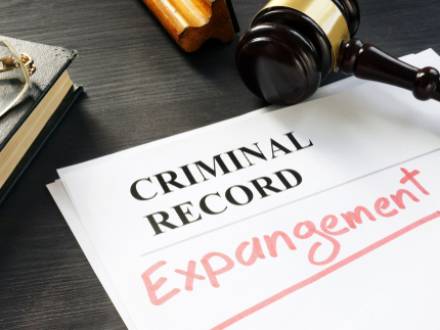What Crimes Cannot Be Expunged from Your Record in Illinois?
 Expungement in Illinois offers a way to clear your criminal record. However, not everyone qualifies, and most offenses are not eligible. If you are hoping to move forward with a clean slate, you need to understand the requirements for expunging charges and convictions under Illinois law. An Aurora, IL expungement attorney can help.
Expungement in Illinois offers a way to clear your criminal record. However, not everyone qualifies, and most offenses are not eligible. If you are hoping to move forward with a clean slate, you need to understand the requirements for expunging charges and convictions under Illinois law. An Aurora, IL expungement attorney can help.
Note that expungement, sealing, and executive clemency are three different ways to address a criminal record in Illinois. Expungement erases the record entirely, as if the arrest never occurred. Sealing restricts public access to the record, but it is still viewable for law enforcement and certain employers, specifically those who use fingerprint-based background checks. Executive clemency is a pardon granted by the governor. If you receive clemency, you may then petition the court to have the crime expunged from your record.
Can Felony Convictions Be Expunged in Illinois?
In almost all cases, felony convictions cannot be expunged. The exceptions are reserved for rare cases, but advocacy for reform is ongoing. For example, SB 3463, a law that streamlines the expungement process for juveniles and amends the Juvenile Court Act of 1987, took effect in January 2025. However, despite attempts to expand access to expungement, certain convictions will always remain on your record unless you are pardoned.
What Crimes Can Be Expunged in Illinois?
Under Illinois law, the following, including some specific convictions, could be considered for expungement:
-
Felony or misdemeanor arrests that did not lead to conviction, including those dismissed, acquitted, or resulting in a finding of not guilty
-
Felony or misdemeanor convictions that were reversed, vacated, or pardoned by the governor, provided you obtain a Certificate of Eligibility for Expungement from the Illinois Prisoner Review Board
-
Class 4 felony convictions for prostitution, under specific circumstances
-
Certain cannabis-related offenses, as allowed under 410 ILCS 705/, the Illinois Cannabis Regulation and Tax Act
-
Convictions of honorably discharged veterans who may qualify for special consideration with property certification
-
Successfully completed supervision and qualified probation sentences after the required waiting period has passed
If your case falls under any of these circumstances, it does not mean that you automatically qualify for expungement. Your attorney can help you understand how the laws apply in your case.
What Can an Attorney Do to Help With Your Expungement or Sealing?
Expungement and sealing laws involve strict eligibility rules, detailed paperwork, and procedural deadlines. An experienced attorney can evaluate your record, determine what qualifies, and handle the filing process accurately to avoid delays or denials. If a court hearing is required, your attorney will represent your interests. Also, should your case require a waiting period, an attorney can help you pursue relief as soon as you are eligible.
Contact an Elgin, IL Expungement Attorney Today
If you are seeking to clear your record, legal guidance matters. At The Law Office of Brian J. Mirandola, we understand the value of expungement and what it can mean for your future. Call 847-488-0889 to speak to a knowledgeable Kane County, IL expungement lawyer today to learn more about your legal options and how the process works.







